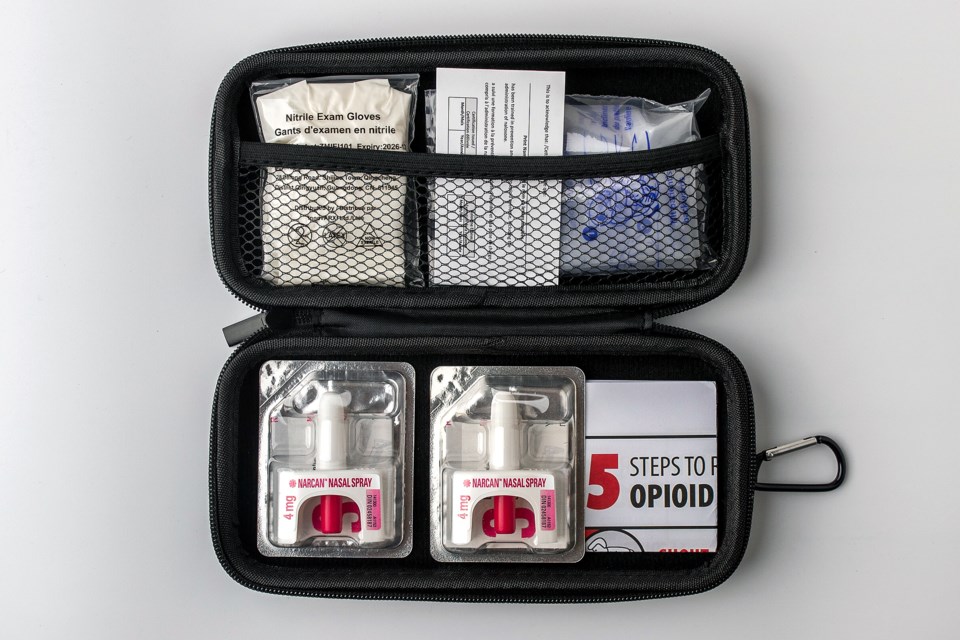The Canada Safety Council has issued a national warning, saying Canadians should be aware of the signs of an accidental opioid overdose and what actions they can take.
In a news release issued this week, the safety council said the impact of the opioid crisis in Canada has been well documented and cannot be overstated.
"Between January 2016 to December 2023, there was more than 44,000 apparent opioid toxicity deaths, and more than 42,000 people were hospitalized for a reported opioid-related poisoning with 65 per cent reported as accidental," said the release.
As SooToday reported yesterday, the Sault had the province's highest rate of opioid-related deaths in the first three months of 2024.
The safety organization is encouraging people to learn about Naloxone, a medication that can be quickly administered to an overdose victim to temporarily reverse the effects of the overdose with enough time to get the person to a hospital.
Naloxone is available free from drug stores and health units to allow Canadians quick access from their home or car, in the same way that people keep first aid kits.
The safety group warning advises that a person who has ingested or smoked too much of a substance might begin to show signs such as blue or grey lips or fingernails, very small (pinpoint) pupils, cold and clammy skin, dizziness, confusion and extreme drowsiness, choking, gurgling or snoring sounds, very weak or slow breathing and inability to wake up even after being shaken or shouted at.
Every opioid overdose should be regarded as an emergency, said the safety council.
"If you believe someone is suffering from an opioid overdose, check for response by speaking loudly and rubbing a fist on the middle of the victim's chest. If there is no response, call 9-1-1 right away, or your local emergency helpline," said the warning.
"Give the person naloxone if it's available. Naloxone is a medication that can help temporarily reverse an overdose if it is administered right away. You can give naloxone while you wait for professional help to arrive," said the warning.
More complete information on the safety council warning is available online.
